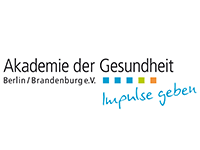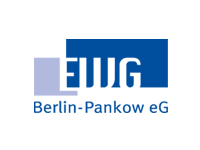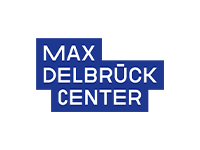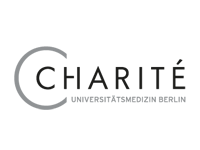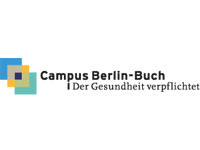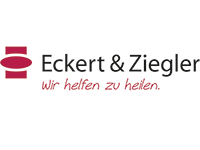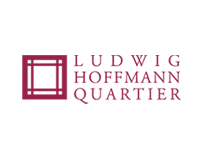Your selection
Research, Innovation, Patient care / 05.09.2022
Million euro support for MyoPax
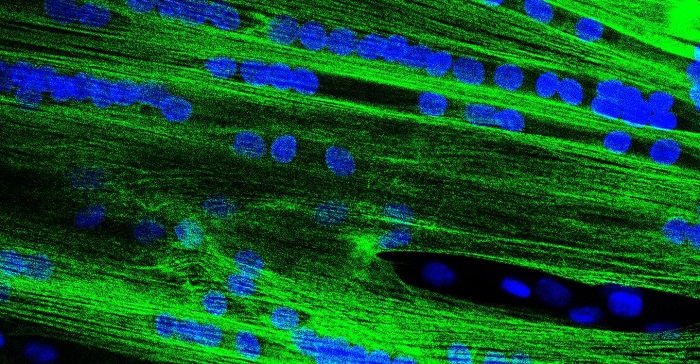
MyoPax, a new spin-off of the Max Delbrück Center and Charité, receives a 1.3 million euros loan to jump-start its entrepreneurial activities. The start-up develops regenerative therapies for previously incurable muscle diseases using its innovative muscle stem cell technology.
The BioInnovation Institute Foundation (BII) in Copenhagen, Denmark, announced that it will be supporting three international start-up companies from Germany, the UK, and Finland. The ventures are strategically aligned with the incubator’s focus, developing ground-breaking scientific initiatives across the therapeutics and health tech space.
MyoPax: Website
MyoPax is one of the three life science spin-offs. It builds on cutting-edge technologies developed by scientists at the Max Delbrück Center for Molecular Medicine in the Helmholtz Association (Max Delbrück Center) and the Charité – Universitätsmedizin Berlin. MyoPax was founded by the medical doctor Verena Schöwel-Wolf and Professor Simone Spuler, who leads the muscle research group and the Outpatient Clinic for Muscle Disorders at the Experimental and Clinical Research Center (ECRC), a joint institution established by the Max Delbrück Center and Charité on the campus in Berlin Buch. Now, the start-up has three employees and is taking its first steps on an international level.
Repair muscle function
MyoPax’ mission is to develop advanced regenerative therapies to fight the devastating consequences of muscle diseases. Their pioneering technology combines cell and gene therapy to repair muscle function.
The spin-off is based in Berlin and Copenhagen and originates from the translational ecosystem of the Max Delbrück Center, the Charité and the Berlin Institute of Health at Charité (BIH). In the lead-up to spin-off launch, both the Max Delbrück Center and the BIH have closely supported MyoPax. To make the leap from the lab to clinical use possible, the Max Delbrück Center facilitated the development of the project in the ERDF-funded Pharma Incubator with its programs PreGoBio and SPOT. The BIH accelerated the spin-off activity via its Spark program. Furthermore, the German Federal Ministry of Education and Research (BMBF) and the Helmholtz Validation Fund (HVF), provided optimal support for the first-in-human clinical trials at Charité with around five million euros to proof safety and efficacy of the investigational drugs developed with the new technology
Guided to a competitive international level
Like the two other companies, MyoPax will now be funded with a risk-free convertible loan of 1.3 million euros and is going to be part of the BII’s community of life science start-ups. In collaboration with the BII team and its network of experts, the three companies will be guided to a competitive international level, receiving support in the roll out of detailed development plans concerning drug development, good manufacturing practice and regulatory strategy, ahead of a Seed or Series A financing round.
Thomas Sommer, Scientific Director of the Max Delbrück Center (interim) said: "We are very pleased for MyoPax to receive this support. Based on the research at Max Delbrück Center and ECRC, important new therapeutic approaches are being advanced here. Muscle diseases are common and have multiple causes. Unfortunately, the prospect of finding a cure is so far low. Stem cell technologies could help alleviate this."
Verena Schöwel, CEO of MyoPax, added: “We thank BII for placing their trust in MyoPax. We are looking forward to a fruitful collaboration. With operational locations in Berlin and Copenhagen, we are integrated in two excellent ecosystems to develop MyoPax and achieve our mission of translating cutting-edge science into regenerative therapies for muscle diseases.”
The two other ventures
Sevenless Therapeutics: Using state-of-the-art mathematical methodology, this next generation biotech company has identified a novel target in pain signaling, defined the properties required for success and validated these predictions with data. Enabled by this insight, their highly experienced drug discovery team will efficiently deliver a safe and effective drug candidate for treating pain. This discovery will make a significant difference to the many patients suffering from inadequately treated chronic pain.
VEIL.AI: A company that brings the quality of anonymized health data to a new level with next-generation anonymization technology creating extremely high-quality subject-level anonymized and synthetic data. It enables better use of GDPR-free data for life science and diagnostics companies, hospitals and health data hubs.
Text: BII / MDC
Further information
- About MyoPax
- A pioneer in muscle repair
- Research on muscular dystrophies at the Max Delbrück Center
- Spin-off funding at the Max Delbrück Center
MAX DELBRÜCK CENTER
The Max Delbrück Center for Molecular Medicine in the Helmholtz Association (Max Delbrück Center) is one of the world’s leading biomedical research institutions. Max Delbrück, a Berlin native, was a Nobel laureate and one of the founders of molecular biology. At the locations in Berlin-Buch and Mitte, researchers from some 70 countries analyze the human system – investigating the biological foundations of life from its most elementary building blocks to systems-wide mechanisms. By understanding what regulates or disrupts the dynamic equilibrium in a cell, an organ, or the entire body, we can prevent diseases, diagnose them earlier, and stop their progression with tailored therapies. Patients should benefit as soon as possible from basic research discoveries. The Max Delbrück Center therefore supports spin-off creation and participates in collaborative networks. It works in close partnership with Charité – Universitätsmedizin Berlin in the jointly run Experimental and Clinical Research Center (ECRC), the Berlin Institute of Health (BIH) at Charité, and the German Center for Cardiovascular Research (DZHK). Founded in 1992, the Max Delbrück Center today employs 1,600 people and is funded 90 percent by the German federal government and 10 percent by the State of Berlin.
THE BIOINNOVATION INSTITUTE FOUNDATION
The BioInnovation Institute Foundation (BII) is an international commercial foundation with a non-profit objective supported by the Novo Nordisk Foundation. BII operates an incubator to accelerate world-class life science innovation. Our vision is to support world-class life science innovation that drives development of new solutions by early life science start-ups for the benefit of people and society. With continued positive development, The Novo Nordisk Foundation can provide up to EUR 470 million (3,5 mia. DKK) to BII over ten years. The BII has supported 62 start-ups with EUR 50 million in funding. The BII’s start-ups have in total raised EUR 207 million from local and international investors. Its diverse team brings venture capital, pharma and business expertise together to help early-stage companies accelerate to the next level. Recent company successes include Adcendo, Stipe Therapeutics, Twelve Bio, Octarine Bio, and Cirqle Biomedical
Overview News
News Buch Berlin
Towards understanding tumors in 3D
Researchers in Nikolaus Rajewsky’s lab at Max Delbrück Center combined high-resolution, single-cell spatial technologies to map a tumor’s cellular neighborhoods in 3D and identify potential targets fo...
more ...Max Delbrück Center to host Helmholtz Drug Discovery meeting
Top scientists and companies will meet in Berlin-Buch for the 2025 Helmholtz Drug Discovery Conference from April 28-30 to discuss RNA drugs, PROTACs, AI in drug discovery, and chemoproteomics and to ...
more ...Eckert & Ziegler Signs Contract Manufacturing Agreement for Yttrium-90-based PentixaTher with Pentixapharm
Eckert & Ziegler Radiopharma GmbH (EZR), a 100% subsidiary of Eckert & Ziegler SE, today announced the signing of a manufacturing agreement with Pentixapharm, a clinical-stage biopharmaceutical compan...
more ...Events Buch Berlin
13.05.2025, 17:00
Sprechstunde der Bezirksbürgermeisterin am 13. Mai auf dem Helmholtzplatz
Die Pankower Bezirksbürgermeisterin Dr. Cordelia Koch führt am Dienstag, dem 13. Mai 2025 von 17 – 19 Uhr ihre nächste Sprechstunde durch. Dazu trifft man sie an einem Stand am Helmholtzplatz, Ecke Ra...
more ...13.05.2025, 17:00
Einladung zum Auftakt des neuen "Jugend-MedienLabor"
Start des neueb Projekts Jugend-MedienLabor: Für Jugendliche, junge Erwachsene und alle, die Lust auf Austausch, Kreativität und neue Impulse haben
more ...13.05.2025, 18:00
Campus-Kino „Die Schwimmerinnen“
Der Freundeskreis des Max Delbrück Centers lädt ein
more ...